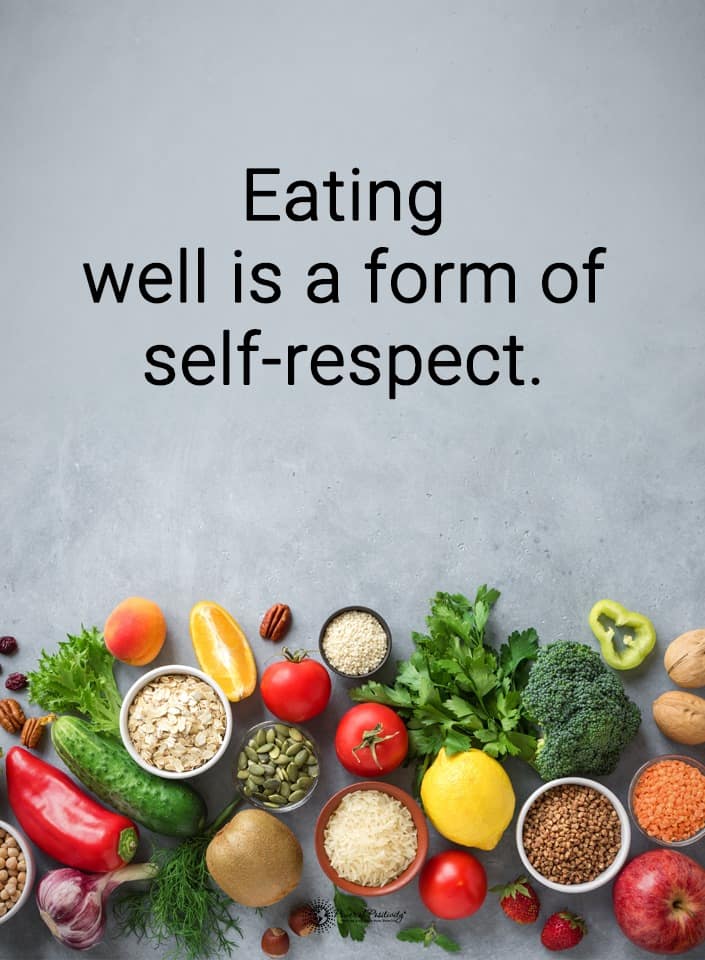A new study by the American Society of Nutrition may disprove the theory that how much we eat drives obesity. Instead, the research found that what we eat plays a much more significant role in our health. The findings could have important implications for treating obesity moving forward.
Data from the Centers for Disease Control and Prevention (CDC) reveals that over 40% of American adults are obese. Obesity raises the risk for heart disease, stroke, type 2 diabetes, cancers, and other health problems. According to the USDA’s Dietary Guidelines for Americans, losing weight “requires adults to reduce the number of calories they get from foods and beverages and increase the amount expended through physical activity.”
However, this weight loss advice comes from the outdated ‘energy balance model,’ which says weight gain occurs by consuming more calories than one can burn. In our modern world, it’s easier than ever to gain weight because of the sheer accessibility to calories. Cities have fast-food restaurants lining main roads through every town. In grocery stores, you’ll see more aisles filled with high-calorie, hyper-palatable snacks devoid of nutrients. We have plenty of calories available, but not the right calories.
Compounding factors we face today
 Compounding the obesity epidemic is that people lead more sedentary lives than at any point in history. We’ve made great strides in creating a more automated world, which means less physical labor. Instead, we spend our days sitting at a desk or standing in one place for hours on end. Because of these societal conditions, obesity rates continue to rise worldwide, but especially in developed countries.
Compounding the obesity epidemic is that people lead more sedentary lives than at any point in history. We’ve made great strides in creating a more automated world, which means less physical labor. Instead, we spend our days sitting at a desk or standing in one place for hours on end. Because of these societal conditions, obesity rates continue to rise worldwide, but especially in developed countries.
Decades of public health announcements urging people to eat less and exercise more have been unsuccessful. However, scientists have developed a new theory about the real reasons behind the obesity crisis. Instead of focusing on how much we eat, they say we should pay more attention to what foods we eat.
The carbohydrate-insulin model may explain the obesity epidemic
The American Society of Nutrition research published in The American Journal of Clinical Nutrition reveals flaws in the energy balance model. Authors argue that a new model, the carbohydrate-insulin model, provides better insight into what’s driving obesity. Also, this model lays the groundwork for more effective, permanent weight loss strategies.
Dr. David Ludwig, an endocrinologist at Boston Children’s Hospital and Professor at Harvard Medical School, led the study. He says that the energy balance model doesn’t take into account the biological reasons for weight gain.
“During a growth spurt, for instance, adolescents may increase food intake by 1,000 calories a day. But does their overeating cause the growth spurt or does the growth spurt cause the adolescent to get hungry and overeat?”
The energy balance model says that overeating and not exercising enough causes obesity. On the other hand, the carbohydrate-insulin model states that what we eat, not how much we eat, matters most. The newest model points to modern food choices as the main driver of the obesity epidemic.
Overly processed, high glycemic foods with simple carbohydrates trigger hormonal responses that disrupt our metabolism. This cycle causes our bodies to store more fat, making us gain weight and become obese, in some cases. Moreover, when we eat highly processed carbs, our body produces more insulin and suppresses glucagon secretion. This signals fat cells to store more calories, meaning fewer calories are left to fuel muscles and other tissues.
Then, the brain perceives that the body lacks energy, which triggers the hunger response. Metabolism also decreases to conserve energy. This process creates a vicious cycle, where we remain hungry despite eating plenty of calories. It doesn’t matter how much you eat if you’re not getting enough nutrients.
What we eat matters more than how much we eat
So, to properly understand the obesity crisis, we need to consider not just how much we eat but what we’re eating. All foods affect our hormones and metabolism either negatively or positively. Of course, we should eat whole, fresh foods, not processed ones made in a lab. However, the energy balance model doesn’t account for this since it assumes all calories are created equal.
The carbohydrate-insulin model dates back to the early 1900s, but The American Journal of Clinical Nutrition offers a more comprehensive approach. It’s authored by a team of 17 internationally recognized scientists, clinical researchers, and public health experts. In their paper, the team compiled many studies and research on the carbohydrate-insulin model. They’ve identified several hypotheses that highlight the differences in the two models to guide future studies.
The authors say that the carbohydrate-insulin model could have massive implications for weight management and obesity treatments. Instead of encouraging people to eat less, the carbohydrate-insulin model offers a more effective strategy: eating higher-quality foods.
According to Dr. Ludwig:
“Reducing consumption of the rapidly digestible carbohydrates that flooded the food supply during the low-fat diet era lessens the underlying drive to store body fat. As a result, people may lose weight with less hunger and struggle.”
The authors added that future studies are necessary to provide definitive conclusions on both models. There’s even a possibility to generate newer models that better apply the findings. They call for constructive debate and “collaborations among scientists with diverse viewpoints to test predictions in rigorous and unbiased research.”
 Final Thoughts: It might not be how much we eat; it’s what we eat
Final Thoughts: It might not be how much we eat; it’s what we eat
We’ve been told for decades to lose weight. We simply need to eat less than we burn. It sounds so straightforward, but this advice doesn’t always work. The theory comes from the energy balance model, which takes the standard calories in, calories out approach.
However, scientists have formulated a new model known as the carbohydrate-insulin model, a more effective weight loss strategy. It says that our food choices are more important than how much we eat.
So, if you’re trying to lose weight, don’t focus so much on eating less. Incorporate more whole, fresh foods, which will leave you feeling fuller, longer. Just as your car can’t run on lousy gasoline, your body and mind can’t function with poor-quality foods. As Hippocrates said: “Let thy food be thy medicine.”
The post Study Claims What We Eat Is More Important Than How Much We Eat appeared first on Power of Positivity: Positive Thinking & Attitude.







 Final Thoughts: It might not be how much we eat; it’s what we eat
Final Thoughts: It might not be how much we eat; it’s what we eat